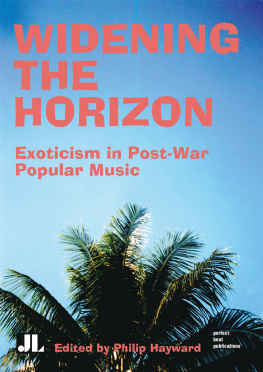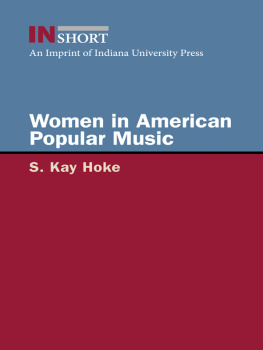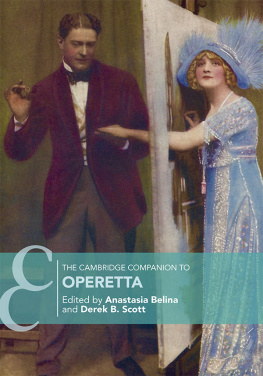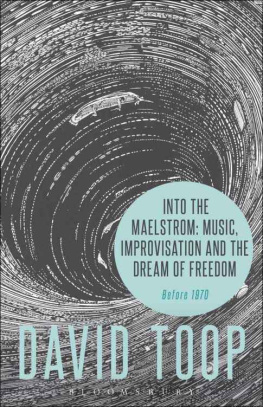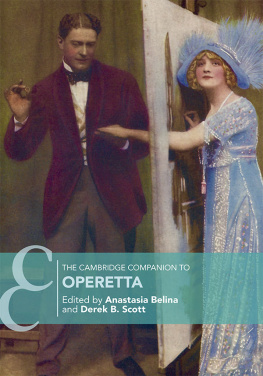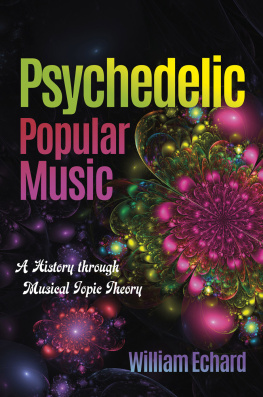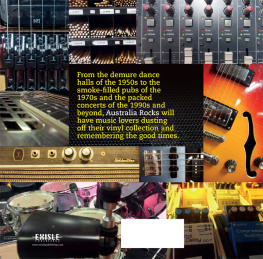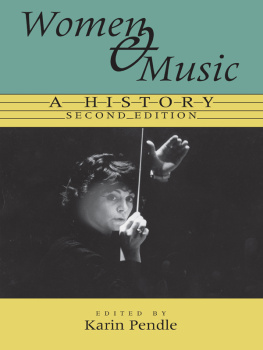
WIDENING THE HORIZON
Dedicated to Amelia, who made her own wonderfully exotic sounds while assisting me in the editing of this book.
WIDENING THE HORIZON
Exoticism in Post-War Popular Music
Edited by
Philip Hayward

Cataloguing in Publication Data
Widening the horizon: exoticism in post-war popular music.
Bibliography.
Includes index.
1. Popular music History and criticism. 2. Music Effect of multiculturalism on. 3. Exoticism in music. I. Hayward, Philip.
781.63
ISBN: 9781 86462 047 4 (Paperback)
ISBN: 9780 86196 933 3 (Electronic edition)
Published by
John Libbey Publishing Ltd, 3 Leicester Road, New Barnet, Herts EN5 5EW, United Kingdome-mail: ;
web site: www.johnlibbey.com
Distributed Worldwide by
Indiana University Press, Herman B Wells Library350, 1320 E. 10th St., Bloomington, IN 47405, USA. www.iupress.indiana.edu
1999 Copyright John Libbey Publishing Ltd. All rights reserved.
Unauthorised duplication contravenes applicable laws.
Printed and bound in the United States of America..
Contents
Philip Hayward
|
Tim Taylor
|
Utopias of the Tropics
The Exotic Music of Les Baxter and Yma Sumac
Rebecca Leydon |
Shuhei Hosokawa
|
Jon Fitzgerald and Philip Hayward
|
Shuhei Hosokawa
|
Jon Fitzgerald and Philip Hayward
|
Karl Neuenfeldt
|
Acknowledgements
T hanks firstly to Shuhei Hosokawa, for encouraging me to edit this anthology. Further thanks are due to Rob Bowman, Claire Butkus, Brent Clough, Jackey Coyle, Mark Evans, Jon Fitzgerald, Nicholas Kent, Tony Langford, Ralph Locke, David Mitchell, Tony Mitchell, Toru Mitsui, Stuart Rogers, Aline Scott-Maxwell, Yngar Steinholt, Amy Stillman, Will Straw, Van Dyke Parks, Karen Ward, John Whiteoak and Mark Worth for their various assistances. Bruce Johnson also contributed a valuable critique of the first version of my Introduction to the volume.
Rebecca Coyle, as ever, provided all-round help, guidance and assistance; and Rosa Coyle-Hayward kept me sane and well-cuddled.
Van Dyke Parks and Stony Browder Jr. also merit acknowledgement for widening my own musical horizons during formative teenage years.
I should also note the contribution of three cities, Honolulu, Montreal and Sydney, whose clubs, bars, universities and second-hand record shops helped me to triangulate the phenomena analysed in these pages.
Research for this book was assisted, in various ways, by the departments of Media and Communication Studies and Music Studies at Macquarie University, Sydney for which many thanks.
Editors Note
Bibliography the bibliographical references for individual chapters are collated on pages 192-198.
Discography all original recordings are referred to in the body of text of individual chapters by dates. Details of relevant CD reissues/compilations of this material are included at the end of each chapter.
Internet Sources individual articles published on world wide web sites are included (together with their web site addresses), in the books end bibliography; general web site references are included at the end of each chapter (where relevant).
Cover photograph: Philip Hayward.
Widening the Horizon is co-published in Sydney by John Libbey and Co and Perfect Beat Publications.
Perfect Beat Publications also publish Perfect Beat the Pacific Journal of Contemporary Music and Popular Culture.
General information about the journal can be obtained from:
The Music Office, Division of Humanities, Macquarie University, NSW 2109, Australia
http://www.ccms.mq.edu.au/pbeat
Introduction
THE COCKTAIL SHIFT
Aligning Musical Exotica
PHILIP HAYWARD
F or anyone interested in exploring beyond the boundaries of the contemporary popular music scene, the past is a strange and wonderful place. Much of it is also a realm of amnesia. While the histories of forms such as the blues and jazz have been studiously recovered, recorded and analysed, other styles and genres remain obscure. Taste (and its politics) are the key factors here. The histories of blues and jazz have been explored by a loose association of enthusiasts, collectors and scholars. The motivation for such initiatives has been a curiosity which derives from particular combinations of personal, class and/or cultural/sub-cultural tastes which act as focal points for the construction of critical and/or historical discourse.
There are two principal ways of addressing this weakness in the field. One involves the external revision of the whole project. The other, a revision and displacement of the central canon and the specific analytical models which led to its establishment. Noble as the former option is, such a meta-analytical enterprise has never been attempted, nor accomplished, by a Humanities discipline old or New and remains a task unlikely to be undertaken by the disparate, fragmented community of scholars who constitute the global intellectual resource of Popular Music Studies. The latter is, therefore, a more realistic option, and it is within such a revisionist project that this anthology locates itself.
Given the relatively arbitrary, taste-derived model I have characterised above, it is un-surprising that the impetus to revise and/or expand the canonical grid of Popular Music Studies (or any other cultural studies field for that matter) often derives from similar impulses. One recurrent factor is synchronicity the simultaneous re-discovery and re-emergence of interest in particular historical phenomena in various cultural and geographical locations (to which the opening chapters of this book are addressed). If I had ever been aware of this music as a child, I had not recalled it; nor did subsequent encounters trigger any such memories. This made it all the more enticing, a shadowy history, only thinly covered by the sands of time, still retrievable.
Two particular accounts, which arose from research interviews I conducted in 1992, whetted my appetite to explore further:
It was completely wild ! Growing up in Turramurra [a northern suburb of Sydney, Australia], in the 1960s, having family dinner together, and my father would put on Arthur Lymans Taboo or similar records and while youd be eating youd have these birds and rhythms and odd noises bells and whatever and you would be carrying on a regular, everyday conversation like it was all normal ! It sounds pretty odd now but it was one of those things at the time.
I thought it was wild, really out there, when I first heard it. It was like they [Martin Denny and Arthur Lyman] were trying all these crazy, crazy things (all at once). I dont know whether it reminded me of growing up [in Papua New Guinea], and whether thats why I liked it I dont know but youd have to say it sounded pretty weird, even for Melbourne!
Together with such comments, a particular silence attracted my attention the silence which represents the academic disdain for musical exotica which prevailed from the 1950s to the near-present.
In 1994 I visited Hawaii on a brief research visit. While there, I met with several leading Hawaiian-based ethnomusicologists, all of whom extended me considerable hospitality. Late one afternoon, drinking a beer in a Waikiki hotel cocktail bar, I looked over my companions shoulder and was immediately . Despite this relative indifference I pursued this academic, and a more senior colleague of his, by e-mail and airmail for the best part of eighteen months, attempting to get them to record an interview with Lyman for
Next page
